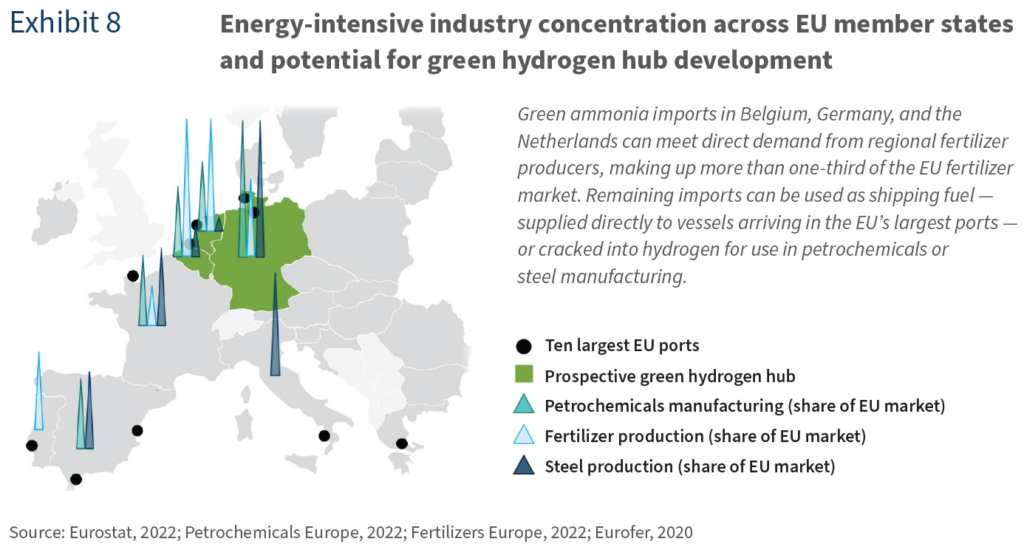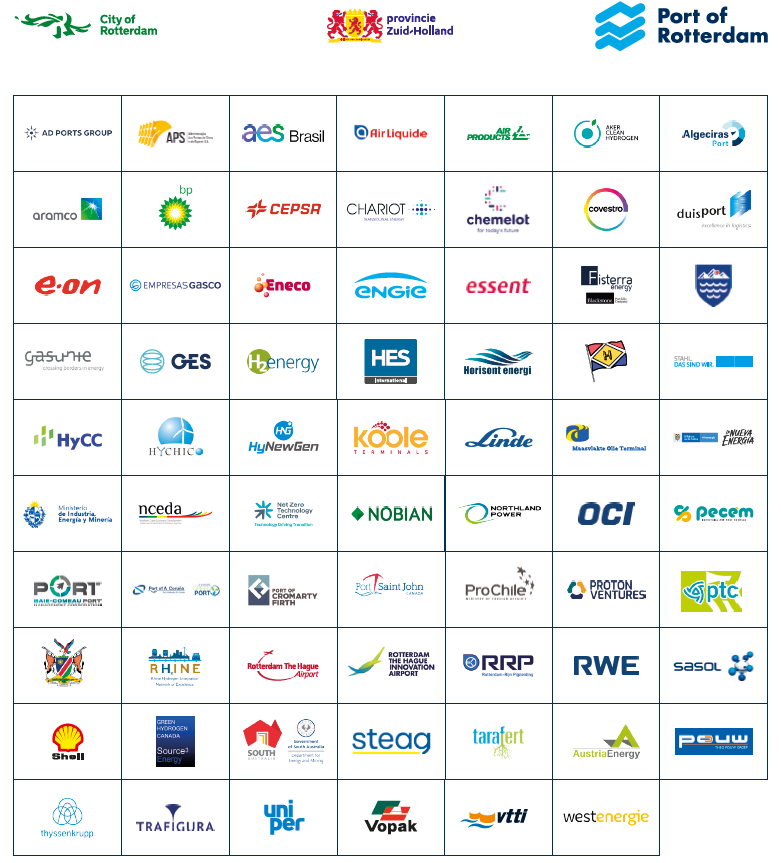Building ammonia supply chains into the Port of Rotterdam
By Julian Atchison on May 26, 2022
From: Queensland, Australia
The Queensland state government has signed an agreement with the Port of Rotterdam to develop ammonia export supply chains between the Australian state and the EU. No volumes or dates are given with the new MoU, but we do know that the Port of Rotterdam is targeting ammonia imports from 2025, with an overall 2050 import target of 20 million tonnes hydrogen. For their part, the Queensland state government is due to release a ten-year energy plan in the coming months, with a sizable role expected for renewable hydrogen and ammonia.
Imports possible from 2024: Rocky Mountain Institute
A new report from the Rocky Mountain Institute describes a roadmap for renewable imports into the EU, beginning as soon as 2024. The authors of Strategic Advantages of Green Hydrogen Imports for the EU argue that:

- CCS and CCUS hydrogen from a variety of producing countries is unlikely to meet the EU threshold for “clean hydrogen” (expect from Norway)
- renewable imports would diversify the EU’s import reliance on OPEC/politically unpredictable countries
- renewable ammonia imports would meet immediate industrial demands in key centers, drastically shifting the energy consumption profile of emissions-intensive EU industries
- key EU ports need to invest in the necessary infrastructure and transmission networks to begin imports begin as soon as possible
- the EU should be coordinating with the most promising producers of renewable hydrogen – Algeria, Australia, Brazil, Chile, Egypt, Mauritania, Morocco, and Ukraine – to ensure imports are able to begin as soon as significant capacity comes online (2024)
Gateway to Europe

And – taking one step further from imports – the Port of Rotterdam has set a goal of supplying the continent with 4.6 million tonnes of hydrogen per year by 2030. The Port Authority is teaming with a high-profile list of organisations & governments to realise this goal, including multiple Ammonia Energy Association members. The announcement highlights that new-build pipeline infrastructure connecting the Port with several industrial clusters in northwest Europe will be required, as well as a robust and effective certification system.